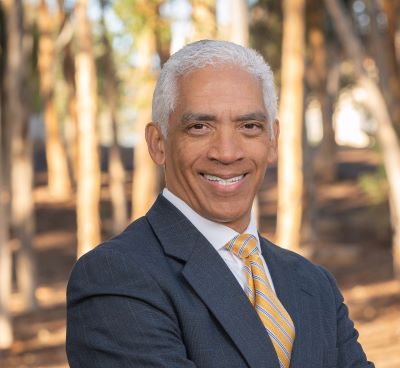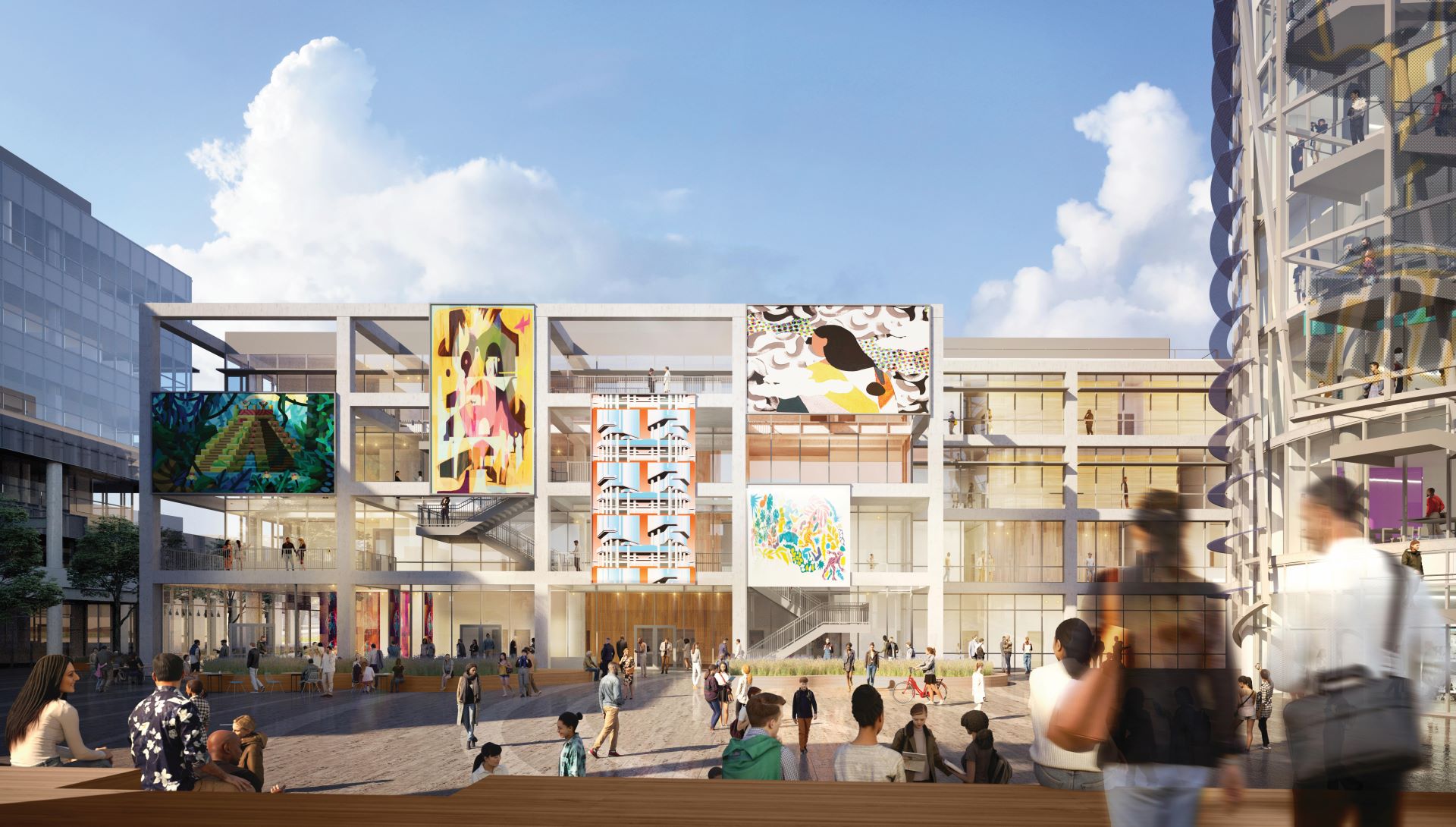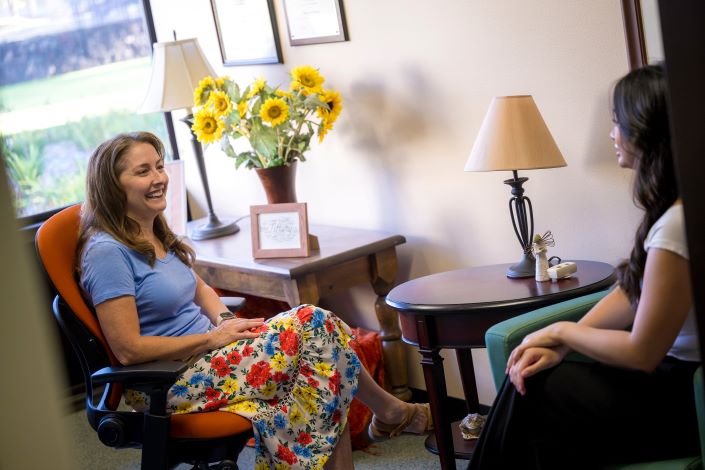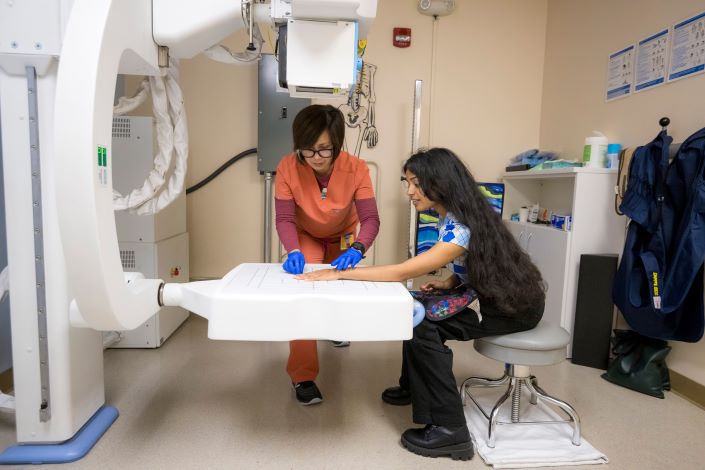Meet the New Optimist on Campus
Edward P. Junkins, MD, MPH, and the Future of Student Health and Well-Being
Published Date
Story by:
Media contact:
Share This:
Article Content
As executive director of UC San Diego’s Student Health and Well-Being, Edward P. Junkins, MD, MPH, is here to align resources across UC San Diego Health, Student Affairs and other university programs to curate an expansive network of comprehensive, inclusive and effective health and wellness services for the Triton community. With plans to move into the Triton Center, slated to open in 2026, Student Health and Well-Being will be at the heart of campus. Furthermore, students can soon expect access to an innovative app that will bring mental health resources straight to their smart devices.

In an interview with UC San Diego Today, Junkins shared more about himself and his vision for the future of Student Health and Well-Being, a cluster made of Student Health Services, Counseling and Psychological Services, Health Promotion Services and Student Health and Well-Being Administration. On the horizon is a comprehensive care facility with a compassionate approach that meets the diverse needs of the UC San Diego community. One where primary care, mental health and health education work together to help Tritons thrive for a lifetime.
This interview has been edited for length and clarity.
Can you give us a crash course in you?
Ed Junkins, he/him/his. I’m the executive director of Student Health and Well-Being here at UC San Diego. I’m a pediatrician and pediatric emergency physician by training and certification. I’m also a public health officer and former commissioned officer in the U.S. Public Health Service. I have served in a variety of academic and administrative positions at the University of Utah, Western University of Health Sciences, University of Notre Dame and UC Berkeley. It was during the pandemic years that I realized I wanted to dedicate my attention to student health. My focus is on primary care, mental health and health promotion, particularly in vulnerable populations, BIPOC populations, LGBTQIA+ populations—the sort where there are disparate health outcomes.
Why UC San Diego?
At UC San Diego, we are fortunate to have a depth and breadth of students and cohorts within our student populations, both undergraduate and graduate, and especially in our professional schools. The opportunities for health improvement are vast. Students on this campus will go out and become doctors, attorneys, artists, engineers, architects, professors and so on. Hopefully, they will do that and create a life and work environment that is healthy and safe. And that will be because of what they learned on our campus. You just can’t underestimate the potential energy on a campus like this.
We must really understand where students are, what their needs are and then meet them where they are.
Your main goals for Student Health and Well-Being?
My expectation in coming to UC San Diego is to primarily evaluate the resources that we have in place for overall medical and mental health, health promotion and the accessibility to all our students.
One of my visions is that we graduate students with a high level of health literacy.

How about that Triton Center?
Student Health and Well-Being will be a different experience in the Triton Center. This is bringing student health, counseling and psychological services (CAPS), health promotion and college mental health all together. And adding employee services means that we will be bringing in new services to share with students. What the Triton Center does is expands our ability to offer comprehensive and complementary services in the same space. It opens more opportunities for us to care for our students.
Currently, there is a percentage of students who use student health services far below the number of students who could be using these services. They should be coming through our doors for primary care, preventative care, mental health care, health promotion coaching and other services. So I am expecting the Triton Center to bring people in. Its location is ideal.
Our health partners are a very big, important part of what we do.

And what about the future mental health app?
The app, I envision, would serve as that digital front door to help transition students coming in as first years or transfers, from uploading their immunizations in MyChart to receiving information about health visits and navigating self-help resources. It’s an app that explores and pulls together all parts of wellness: physical, emotional, social, spiritual, intellectual, financial, occupational and environmental. And because it’s an interactive app, we envision it to be very much individualized based on usage. We want to make sure students have it right from the start, that they understand how to use it and it results in the kind of experience that encourages ongoing use.

How else will clinical and mental health services expand on campus?
Because we are partners with UC San Diego Health, we are always looking for ways to bring that level of care into our student health center. As a faculty member within the School of Medicine, for example, I’ll have opportunities to bring trainees into our group, and that will improve health care and richness overall. We also have formal arrangements with the Department of Psychiatry that provides access to ongoing care for our students that CAPS may not be able to absorb. Other opportunities include group therapy, physical therapy, sports medicine and subspecialty referrals.
How about your own well-being – how do you take care of yourself?
For me, it’s a matter of simple things, like setting an alarm to remind myself to stop working, to drink enough water or to look up from my screen. Most of my time working is at a standing desk, and I encourage my team to schedule me walking meetings. I’m protective of my lunch hour so that I can go for short walks and meditate. I also like to run. But, again, I have to build these things in. And it’s my hope that wellness becomes instinctual for all people.
Care to share any personal notes?
I am an optimist and, really, a servant at heart. I also embrace life and like to engage with people across the entire spectrum.
Share This:
You May Also Like
Stay in the Know
Keep up with all the latest from UC San Diego. Subscribe to the newsletter today.



